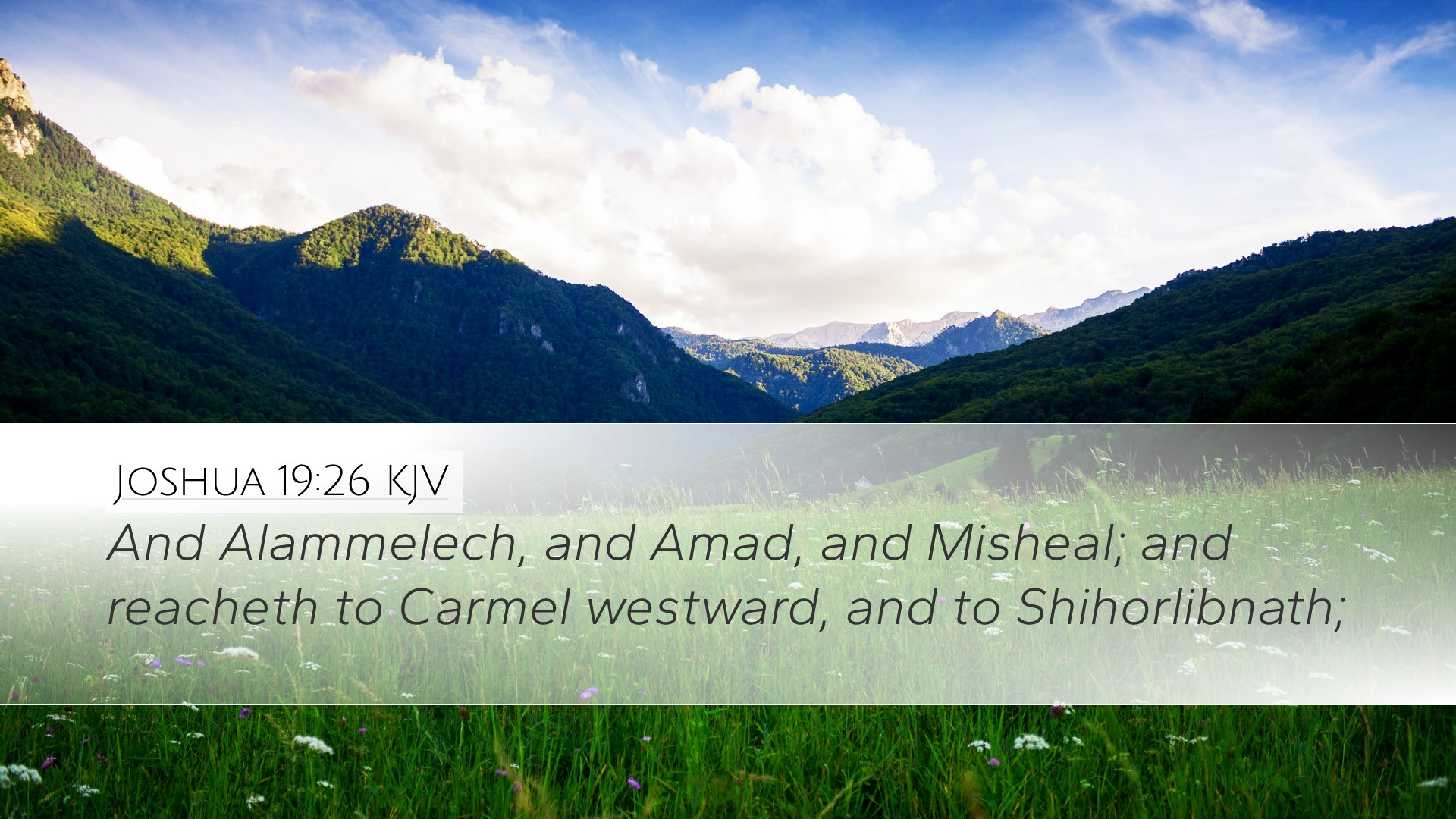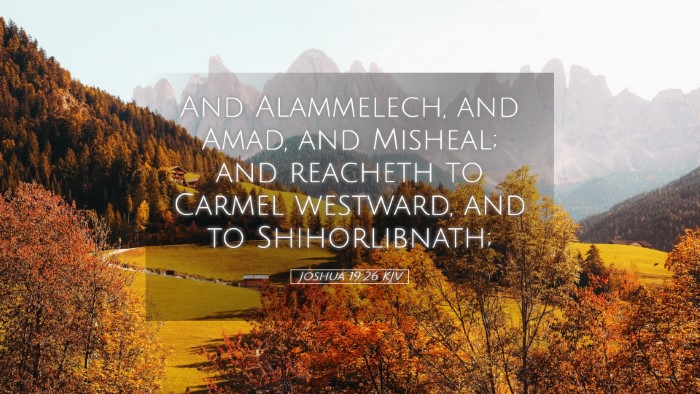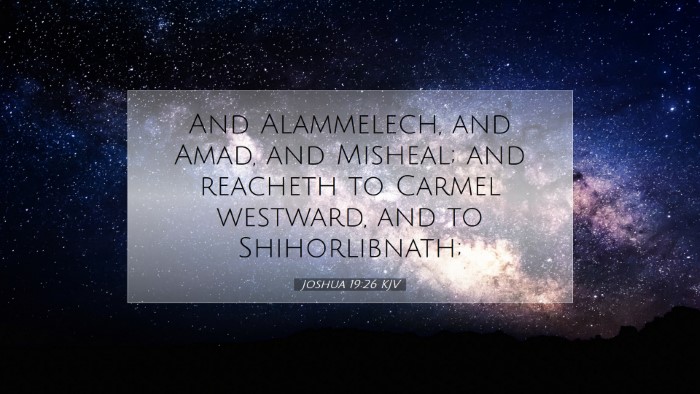Commentary on Joshua 19:26
Verse Overview
Joshua 19:26 states: “And Me-jarkon, and Rakkon, and the border before Japho.” This verse is critical in delineating the boundaries and towns allocated to the tribe of Dan. The mention of specific locations serves as a reminder of God's fulfillment of His promises to the Israelites and the importance of accurate geographical and tribal records in the Old Testament.
Contextual Analysis
Historical Background
The Book of Joshua describes the conquest of Canaan and the subsequent division of the land among the tribes of Israel. Chapter 19 particularly focuses on the second allotment, which is allocated to the tribe of Dan. Understanding this context is essential for appreciating the implications of this verse.
- The Tribe of Dan: Originally given a substantial territory, the tribe struggled to maintain it due to various pressures, necessitating a reassignment of their inheritance.
- Significance of Boundaries: The specified towns and borders signify God's providence and faithfulness in providing for His people, highlighting the importance of spatial territory in Israelite society.
Commentators' Insights
Matthew Henry
Matthew Henry emphasizes the divine promise in the allocation of land to the tribes of Israel, asserting that no detail, including the naming of towns and boundaries, is insignificant in God's redemptive plan. He underscores that the borders of Dan allowed for a fulfillment of God’s promise to Israel regarding a fruitful and plentiful land.
Albert Barnes
Albert Barnes provides a detailed geographical analysis of the towns mentioned in Joshua 19:26. He notes that Me-jarkon and Rakkon were towns that served strategic purposes, linking trade routes and providing security for the territory. Barnes also highlights that these locations symbolize advocates against external enemies, reflecting the ongoing struggle the Israelites faced during their settlement in Canaan.
Adam Clarke
Adam Clarke interprets this verse in the wider context of God's covenant with Israel. He observes that the assignment of land is not merely about geography but is deeply symbolic of spiritual inheritance. Clarke points to the tension between physical and spiritual inheritances, suggesting that while the land was allotted, God’s ultimate plan transcended geography and pointed toward the coming of the Messiah and the establishment of His eternal kingdom.
Theological Implications
Joshua 19:26 invites a reflection on several theological themes:
- God's Sovereignty: The precise mentioning of borders serves as a concrete reminder of God's sovereignty over nations and individuals. The allotment of land is a testament to God’s active participation in history.
- Faith and Struggle: The Danites’ struggles with maintaining control over their land resonate with the trials faced by believers today. The verse serves as an encouragement that while there may be challenges, God’s promises remain unchanging.
- Identity and Inheritance: This boundary setting contributes to a broader understanding of identity among God’s people. In a spiritual sense, believers are called to recognize their identity in Christ as part of a greater inheritance that extends beyond mere land to the promise of eternal life.
Practical Applications
For pastors and church leaders today, Joshua 19:26 can serve as a powerful foundation for teaching and encouraging congregations:
- Encouragement of Faithful Living: Just as the Israelites were called to be stewards of the land allocated to them, modern believers are called to steward their blessings, opportunities, and responsibilities faithfully.
- Reminders of God’s Faithfulness: Emphasize how God faithfully fulfills His promises, even in the face of challenges. Use this verse to teach congregations to trust in God's plans.
- Understanding Our Spiritual Inheritance: The allocation can be used as a metaphor for understanding the spiritual inheritance believers have through Christ, encouraging a deeper pursuit of a relationship with God.
Conclusion
Joshua 19:26 serves as a reminder of the richness of God's provision and the importance of recognizing our place within His divine narrative. As believers reflect on these ancient texts, they can draw parallels to their own lives and faith journeys, affirming that God’s purposes and promises continue to unfold beautifully throughout history.


